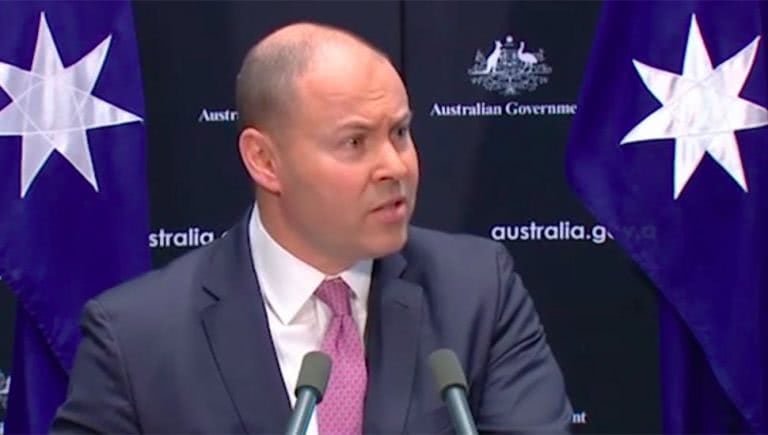Australia is set to suffer its first recession in 29 years.
GDP figures from the Bureau of Statistics have revealed that Australia’s economy shrank 0.3 per cent in the March quarter, as a result of the bushfires and the coronavirus pandemic.
This makes it certain that Australia will suffer its first recession in 29 years, as the full impact of coronavirus-related shutdowns occurred during the current June quarter.
For all those that aren’t entirely sure what a recession means (me), it’s defined by two consecutive quarters of Gross Domestic Product contraction. If the economy shrinks again in the June quarter, Australia will face its first recession in almost thirty years — ending a world-record streak of uninterrupted growth.
The negative quarters between March and June 1991 was the last time Australia faced a recession. Treasurer Paul Keating described that period as “the recession we had to have”.
Federal Treasurer Josh Frydenberg was the first to confirm Australia is in recession — warning that coronavirus remains a threat to the economy.
“Treasury were contemplating a fall in GDP of more than 20 per cent in the June quarter. This was the economists’ version of Armageddon,” he told reporters at Parliament House via ABC.
Love Music?
Get your daily dose of metal, rock, indie, pop, and everything else in between.
“It was in this quarter — the March quarter — that consumer and business confidence fell to its lowest level on record. That the ASX 200 lost a third of its value and, on the 16th of March, saw its biggest daily fall of 9.7 per cent on record.
“When combined with the ongoing drought, which saw farm GDP fall by 2.4 per cent in the quarter, and the devastating impact of the fires that were raging across many states, one looks back on the March quarter, and there wasn’t much good news.
“Seen in this context, the fact that the Australian economy only contracted by 0.3 per cent shows the Australian economy’s remarkable resilience.
“Indeed, Australia’s performance in the March quarter compares very well to that seen in other nations, with negative growth of 9.8 per cent in China, 5.3 per cent in France, 2.2 per cent in Germany, 2 per cent in the United Kingdom and 1.3 per cent in the United States.”
Chief economist Bruce Hockman emphasised that even before the pandemic and bushfire crisis, Australia recorded it’s slowest annual economic growth in almost a decade.
“This was the slowest through-the-year growth since September 2009, when Australia was in the midst of the global financial crisis, and captures just the beginning of the expected economic effects of COVID-19,” he explained.
The last recession was crippling — the worst since the Great Depression of the 1930s — and left swathes of people jobless and unable to break into the workforce.
It took a year for the recession to “officially” end, but the unemployment rate continued to rise even as the recovery process was kicking off.
I don’t really know what any of this means but I’m a little frightened and if there are any economists out there that want a girlfriend my dms are open.


































